Two Neurosurgeons Join The Staff Of SIUH To Help Develop A Program Of Comprehensive Care Evaluating And Treating Spine Disorders At Every Stage Of Life
By Jessica Jones-Gorman
With less than 5,000 practicing neurosurgeons in the United States, this small but complex surgical specialty accounts for less than one percent of doctors worldwide, with female neurosurgeons representing an even smaller fraction of the national total. The challenge and dedication of this profession is intense, the training is rigorous, and the scope of surgical procedures extensive, but at Staten Island University Hospital, two female neurosurgeons are breaking new ground.
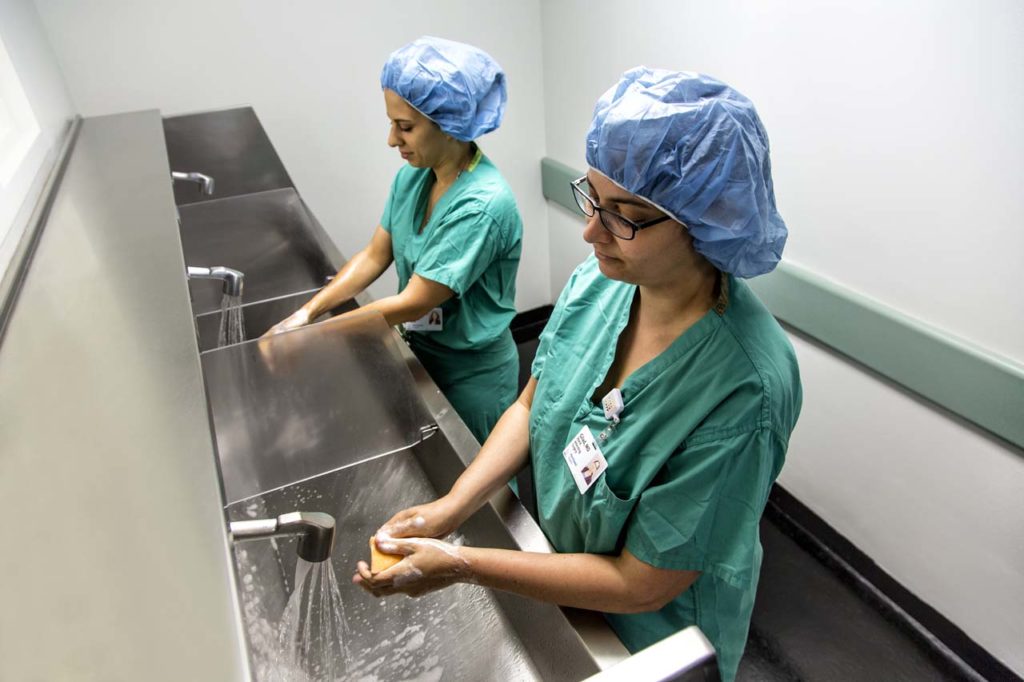
“I chose neurosurgery because of the challenges that each case presents,” noted Dr. Soriaya Motivala, who has been practicing in her field for 10 years. “I originally planned on serving women as an OB/GYN but my neuroscience studies convinced me otherwise; the very idea that one single procedure could take away a patient’s pain and improve their function was so inspiring. From my very first case, I was simply blown away by this specialty.”
Motivala, who grew up in Canada and attended medical school in Indiana before completing her neurosurgery residency at Mount Sinai Medical Center, was recruited to SIUH’s neurosurgery department three months ago, along with longtime colleague and friend, Dr. Ronit Gilad.
“Our goal here is to provide the highest quality of care while expanding upon the range of services already available to patients of this borough,” noted Gilad. “Patients shouldn’t have to travel to Manhattan when comprehensive and integrated neurosurgical care already exists right here in their own backyard.
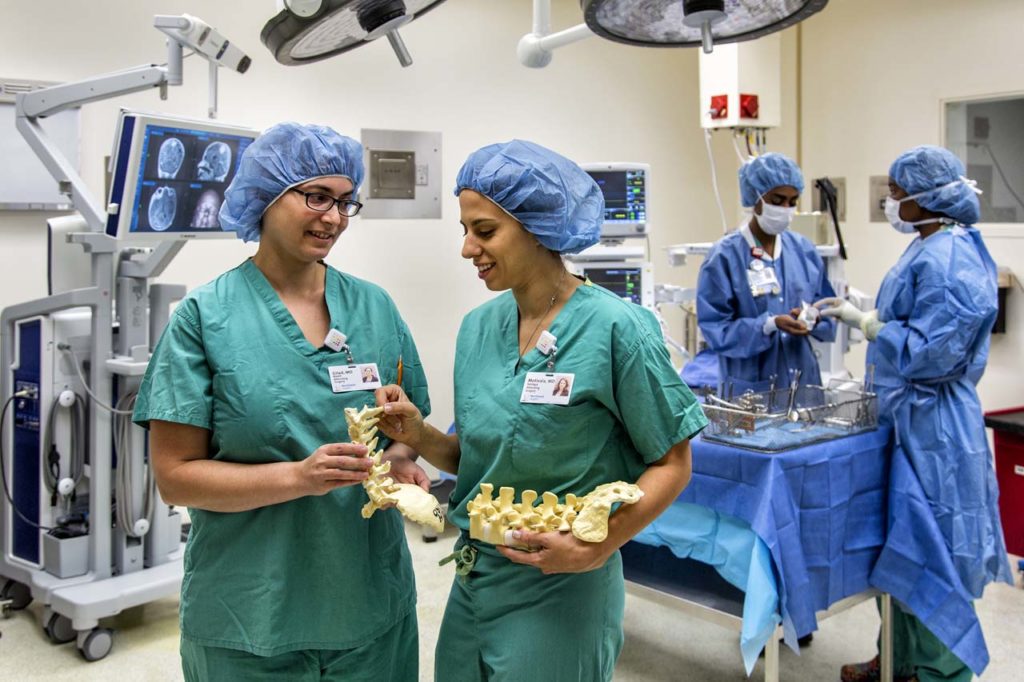
”The pair of neurosurgeons, who met during their residencies at Mount Sinai, worked together to develop a well regarded spine program at Mount Sinai Beth Israel Hospital before coming to SIUH.
“Dr. Gilad was my chief resident at Mount Sinai and I found her to be such an inspiring mentor,” Motivala said. “We shared the same view of ethical, thoughtful patient care, and our basic moral sense of the practice of medicine was the same. I completed my training just as Mount Sinai was acquiring a number of hospitals and they hired me to stay on and develop their neurosurgery program at Beth Israel. I strongly suggested Dr. Gilad stay on as my partner and together we built a robust neurosurgery practice in an underserved area of Brooklyn.”
The pair developed a complex program of comprehensive care—evaluating and treating spine disorders at every stage of life. They were soon recruited by North well Health to establish such a program on Staten Island.
“We have a warm and welcoming team here that goes to great lengths to resolve our patients’ ailments,” said Motivala. “Doctors who collaborate to provide care and offer the best and most personalized treatment plans. We have all of the tools and technologies; there is no need to travel when that level of individualized care is offered at your local hospital.”
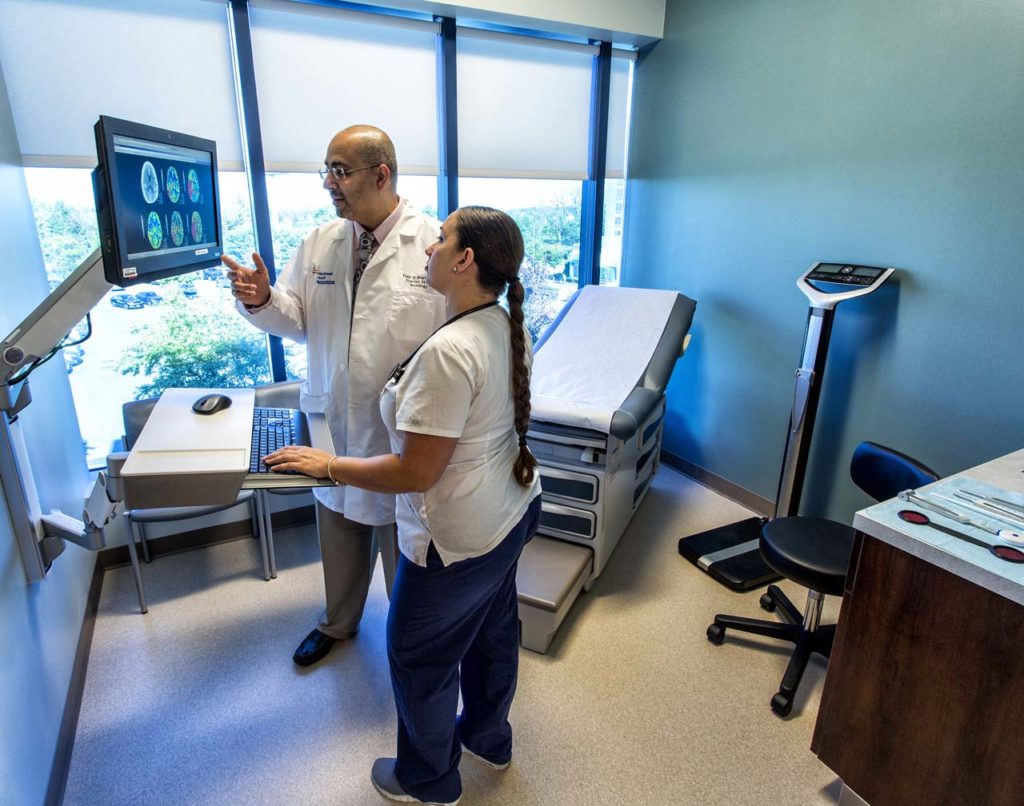
At SIUH, Motivala specializes in therapeutic neuro modulation (the alteration of nerve activity through targeted delivery of a stimulus to specific neurological sites in the body), which can help restore function or relieve symptoms that have a neurological basis.
“It is such a privilege to watch a patient after surgery who used to grimace in pain with each step walk down the hallway smiling at you,” she said.
Gilad, who before her residency served four years in the Navy, treating service members and their families at Naval Medical Center Portsmouth, specializes in skull base lesions and complex tumors. “While in the military I worked on a team that focused on skull base brain tumors and concentrated on spinal arthroplasties (disc replacement surgery), treating young active military personnel who suffered from single or two level disc disease of the spine,” Gilad explained. “So I have experience in that area and also specialize in complex tumors in very small spaces that control face function, swallowing ability, and other tasks that are vital to life.”
Gilad is also well versed in treating disorders of the pituitary gland, having trained with a renowned pituitary surgeon, Dr. Kalmon Post, at Mount Sinai. She also had the opportunity to collaborate with the neurology department at Staten Island University Hospital to further evolve its burgeoning epilepsy program.
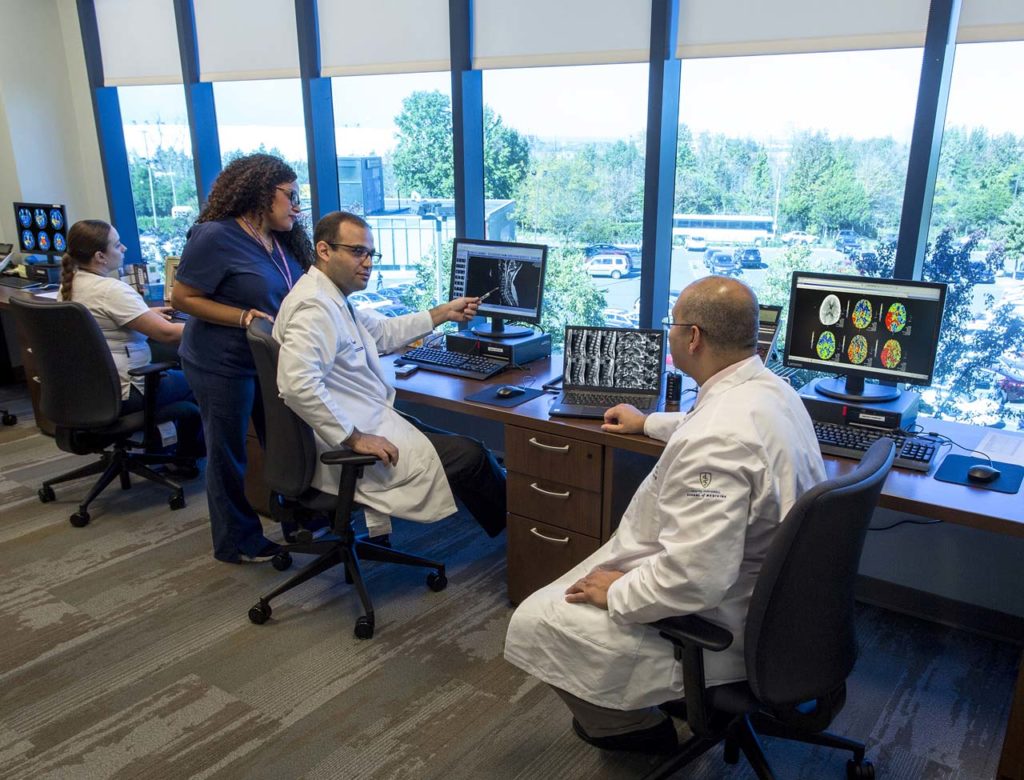
Both doctors are committed to finding alternatives to chronic pain medication.
“We prescribe minimal pain medication post operatively, and rely on a number of minimally invasive surgeries and non surgical techniques to treat our patients,” Motivala said. “Neuromodulation is a wonderful treatment for chronic pain that essentially fools the brain into thinking that pain signals do not exist. This is an important tool for us, especially in this current climate of prescription drug addiction.”
It’s just one example of how the field of neurosurgery is rapidly advancing.
“The future [of the field] is incredibly exciting,” Motivala said. “It simply amazes me how much we can do through very small incisions during a minimally invasive spine procedure, and it’s only going to get better with time.” For Drs. Motivala and Gilad, it’s fulfilling to see how all these advances help patients.
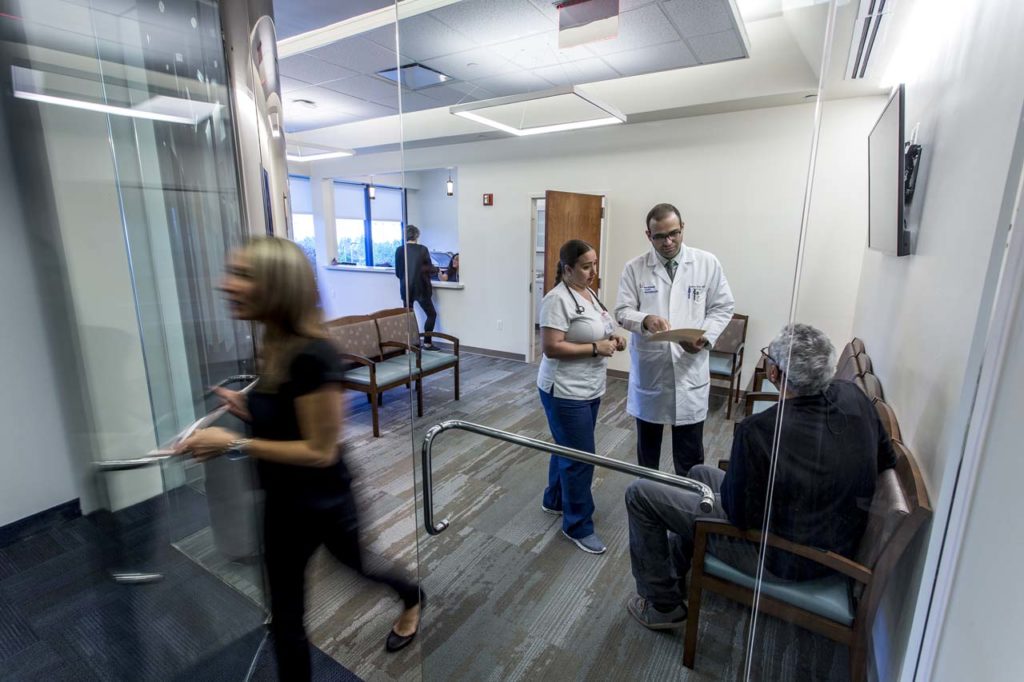
“After all of these years, it still moves and excites me to meet with a patient post-op and see how surgery has improved their life,” concluded Gilad. “We have the ability to help people recover from a severe brain injury and can offer therapies to improve pain and other debilitating illness. The ultimate standard is to help patients recover and get back to their normal, daily routine. If we are able to accomplish that, then we have done our job.”
Staten Island University Hospital / Northwell Health
475 Seaview Avenue / 718.226.9000 / northwell.edu


